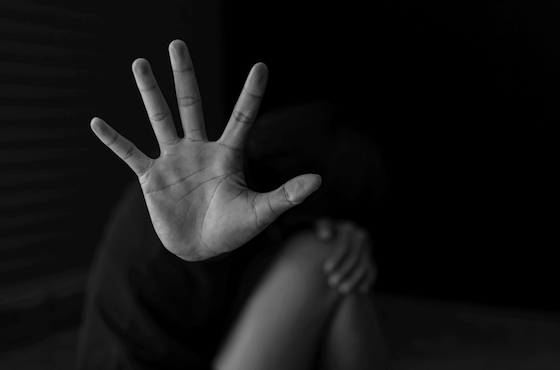
The Path from Domestic Abuse to Safety
Abuse is not part of God’s design for marriage.
Domestic abuse is completely contrary to what God had in mind when he said a man would leave his father and mother and become one with his wife.
But domestic abuse happens more often than we realize.
The National Domestic Violence Hotline reports:
- An average of 24 people per minute are victims of rape, physical violence, or stalking by an intimate partner in the United States — more than 12 million women and men over the course of a single year.
- On average, more than 1 in 3 women and 1 in 4 men in the US will experience rape, physical violence, and/or stalking by an intimate partner.
- Almost half of all women and men in the US have experienced psychological aggression by an intimate partner in their lifetime (48.4% and 48.8%, respectively).
These numbers are alarming and revealing.
It’s easy to assume we don’t know anyone who is suffering from domestic abuse, but the high percentage of abuse victims means it is very likely we know someone who is a victim of abuse. They’ve just remained quiet!
As Lifeway Research suggests, “One in 4 women live in destructive relationships and many of these women sit in church every Sunday, next to the abuser, the father of their children.”
No one should ever fear their spouse.
If you or someone you love is a victim of domestic abuse, there is hope and a way to safety.
To help us discuss this difficult topic, we are using the booklet Domestic Abuse: Help for the Sufferer by Darby A. Strickland.
What is Domestic Abuse?
There tend to be some misconceptions about what actually constitutes domestic abuse.
This confusion comes because we tend to hear the term domestic violence.
Therefore, if the abuse isn’t violent, some people may not see it as abuse.
Let’s clear this up.
According to Strickland, “God intends marriage to be a place of sanctification, in which we learn to serve, love, and care for each other. Marriage is not supposed to be a place for self-interests; it is designed to be sacrificial – a picture of the relationship between Christ and his redeemed people. If your spouse is seeking to gain or maintain power or control over you, they are violating God’s design for the sake of their own dominion. God has a word for this: oppression.”
If a spouse uses punishing behaviors, control, or coercion to dominate his or her spouse, it’s oppression (or abuse).
Oppression and the tactics used will vary from one relationship to the next, but there are five primary types of domestic abuse.
- Physical – the intentional or reckless use of force that may result in injury or harm.
- Emotional – a pattern of behavior that “promotes a destructive sense of fear, obligation, shame, or guilt.” Some studies have found emotional abuse to be more damaging than physical abuse.
- Spiritual – this type of abuse occurs when the oppressor uses spiritual roles or scripture as weapons.
- Sexual – any type of unwanted or forced sexual activity.
- Economic – the complete control or limitation of the partner’s finances.
Due to the subtle nature of some types of abuse, some people question whether they are really being oppressed.
Strickland explains, “Almost everyone who is oppressed struggles with confusion, no matter how overt the abuse is. Whether you are beaten, threatened with lethal violence, or emotionally targeted, you probably struggle to maintain clarity about your situation.”
Ask yourself whether you are being made to feel responsible for the abuse, are being coerced to give in to demands, or are being made to feel sorry for your spouse.
All are signs of domestic abuse.
Moreover, abuse tends to come and go.
Most people are not experiencing full force attacks daily, and oppressors will typically apologize and attempt to repair the relationship.
Unfortunately, as Strickland points out, “These apparently remorseful actions are usually not true acts of lasting repentance grounded in godly sorrow.”
Oppressive relationships are unsafe, but due to the nature of the situation, spouses tend to stay in these relationships.
According to Lifeway Research, “Statistically, victims will return to the destructive relationship seven times before they leave for good.”
How Domestic Abuse Affects People
Oppression is harmful in a number of ways.
Strickland writes, “An oppressor may limit personal freedoms of, induce fear in, exploit, terrorize, humiliate, withhold resources from, isolate, threaten, demand obedience from, or physically [or lethally] harm a spouse. Living under such evils harms the oppressed person’s emotional, spiritual, physical, sexual, relationship, and economic well-being.”
Victims of domestic abuse are prone to anxiety, PTSD, addictions, and more.
What God Says About Abuse
God hates abuse.
He does not want to see his children harmed.
If you are being abused, it is important to remember these God-breathed truths.
- The abuse is not your fault. Oppressors try to make you feel like you are to blame. This is categorically untrue.Strickland says, “They will say you provoked them. But God says the opposite is true. Abusive acts flow from your oppressor’s heart, choices, and deliberate actions.”
- You do not deserve this abuse. No matter what you’ve done, God does not want to punish you with this oppression.Strickland writes, “God’s desire is not to punish you but to woo you to himself.”
- Oppression violates God’s design for marriage.Strickland explains, “God designed marriage to be a place of mutual trust, sacrifice, care, and honesty. It is supposed to be a reflection of how Jesus loves his church.”
- God sees your suffering. You are not forgotten, and you are not alone.Strickland writes, “Take comfort in knowing that Jesus not only sees but also understands your suffering, because he too experienced suffering and oppression.”
- God desires to rescue you. God does not want you to suffer at the hands of an unrepentant sinner. The Bible is filled with story after story of God faithfully rescuing people from oppression.
The Path from Domestic Abuse to Safety
The serious nature of domestic abuse must not be ignored.
You need to take steps towards safety.
Unfortunately, if you want things to change, you must take action (because the oppressor usually will not).
The following are the steps Strickland suggests.
- Understand the Heart of an Oppressor.
It sounds harsh, but you must see your oppressor for who he or she is.You put yourself in a dangerous position when you fail to see what they are capable of.
For example, you need to understand that oppressors believe they are entitled to certain things and types of treatment.
They also have little self-awareness and have deceived themselves into not seeing their sin.
Strickland explains, “They do not see their brokenness, so nothing internal propels them to change.”
- Prioritize Your Safety.
Studies have proven that abuse grows over time. What starts small can grow into an extremely dangerous situation.If you are in imminent danger, escape and call 911.
If you are living in an unsafe, volatile situation, you may need to leave your home.
Strickland writes, “God hates what is being done to you. If your oppressor is unwilling to make important and significant changes, God does not require you to endure oppression while waiting for change. You will need much wisdom in order to figure out the best course of action in your particular situation. But recognize God does not want you to suffer in such intense and dehumanizing ways.”
- Speak to Someone.
Speaking of needing wisdom, you should speak with people who are familiar with domestic abuse and how oppressors operate.This is a matter of safety.
Strickland says, “The evils of domestic violence thrive behind closed doors. […] God desires you to have help from wise and loving people. God calls you to bring abusive acts into the light so that you may be rescued (see Eph. 5:11, 13).”
- Turn to God.
The isolating nature of domestic abuse may make you feel isolated from God. You’re not. He’s always near.Strickland writes, “Even when you are upset with him and feel abandoned, God invites you to speak to him. […] God wants to know and care for your heart. He has even given you the Holy Spirit, your Comforter, to help you turn to him with your deepest pain. God does ask us to forget our suffering. Quite the opposite is true. He invites us to lament.”
If you are in an abusive relationship, please seek help from those experienced with domestic abuse.
South Bay Bible Church can help connect you with resources, safe homes, and counseling services.






